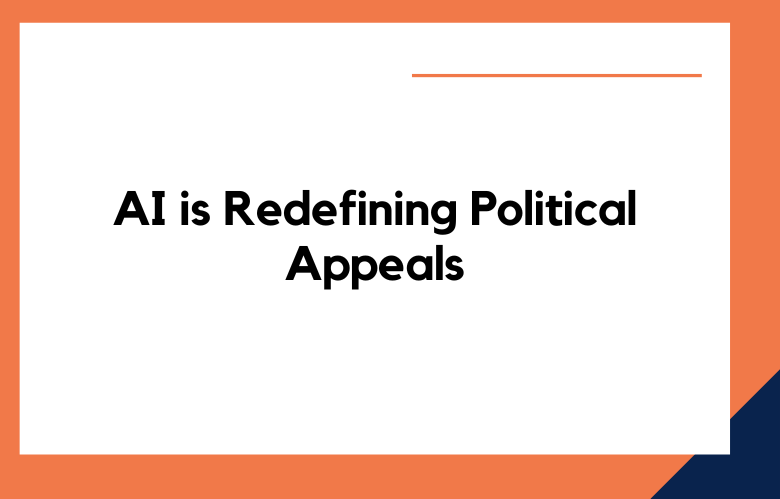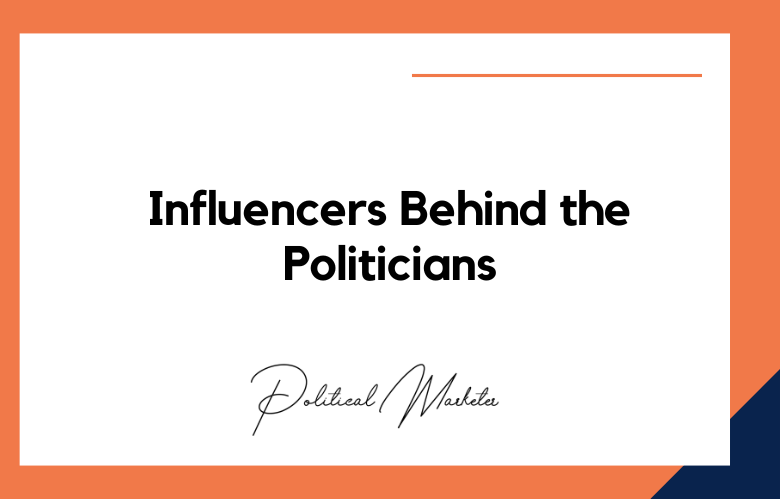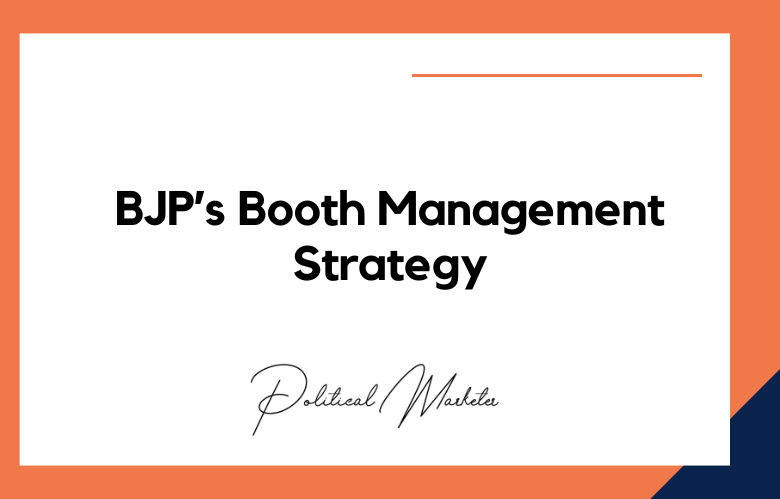Traditional methods of advertisement have long dominated political campaigns. However, as technology advances, the world of politics is changing. In recent years, artificial intelligence (AI) has been prevalent in political persuasion. The Art of Persuasion: How AI is Redefining Political Appeals highlights the modern-day reality of political campaigning and the increasing role of AI in shaping political influence.
AI is a game-changing technology that can potentially revolutionize the world of politics. By leveraging massive datasets, AI enables campaigns to target specific groups of voters with customized messages. AI algorithms can analyze vast amounts of data, including social media interactions, search histories, and public records, to gain insights into individuals’ political interests and opinions.
Precision Politics: How AI is Reshaping Voter Outreach
Advancements in artificial intelligence (AI) are revolutionizing the way political campaigns target voters. Gone are the days when candidates relied on door-to-door canvassing and bulk mailing to reach voters. Now, political campaigns have access to vast amounts of user data, which can be analyzed using AI algorithms to predict voting patterns and preferences.
AI-powered voter outreach strategies have proven to be highly effective in recent elections. For example, during the 2016 US presidential election, the Trump campaign used an AI-powered Project Alamo system to analyze social media data to identify potential supporters and target them with personalized ads.
AI-Powered Persuasion: The Future of Political Outreach
The field of political outreach has been rapidly evolving with the advent of new technologies, including Artificial Intelligence (AI). In today’s era of digital communication, there is a growing demand for political campaigns to implement cutting-edge AI-powered persuasion techniques to sway voters and win elections.
Integrating AI into political campaigns enables political candidates and their teams to analyze massive data sets to identify what issues and messaging are most likely to resonate with voters. By collecting and analyzing data from various sources, such as social media, online polls, and voter databases, AI-powered persuasion algorithms can generate finely tailored messages more likely to appeal to individual voters.
Microtargeting with a Twist: AI’s Impact on Voter Engagement
In recent years, microtargeting has become a popular marketing technique for political campaigning. It involves targeting specific groups of voters with tailored messages to sway their opinions and ultimately secure their votes. However, with the advent of artificial intelligence (AI), microtargeting is taking on a new level of sophistication.
AI-powered microtargeting algorithms can analyze vast amounts of data and generate more accurate profiles of individual voters, taking into account not just demographics and voting history but also factors such as personality traits, online behavior, and interests. This allows for a more nuanced understanding of each voter and enables political campaigns to craft more personalized messages and outreach strategies.
The New Campaign Trail: AI and Microtargeted Voter Outreach
The use of artificial intelligence (AI) and microtargeted voter outreach is rapidly becoming an indispensable aspect of election campaigns. Political parties and candidates increasingly turn to AI-powered tools to identify specific voter groups or demographics likely to be receptive to their message and craft tailored messaging to sway their opinion.
This personalized approach to campaigning has proven more effective than traditional mass marketing strategies, yielding improved voter conversion rates and higher campaign ROI.
The technology behind microtargeted voter outreach uses sophisticated algorithms to analyze massive amounts of data, including social media activity, browsing habits, and purchasing patterns. This data is then integrated with voter registration data to identify likely supporters and swing voters susceptible to campaign messaging.
By using AI to analyze this data, campaigns can create particular voter profiles, allowing them to craft messages that resonate with individual voters and increase the likelihood of securing their votes.
Voting in the Age of AI: The Power of Personalization
In today’s digital age, artificial intelligence has become a powerful tool utilized in various industries across the globe. Among these industries is the electoral process, where AI has transformed how people vote. AI has introduced a new era of personalization in the voting process, giving unprecedented power to voters to tailor their voting experience to their preferences.
Personalization technology has enabled election officials to provide customized recommendations to voters, allowing them to make informed decisions. AI algorithms mine vast amounts of data, including personal data gathered through online voter registration, social media, and other sources, to provide highly personalized voting recommendations. These recommendations include information about candidates, their voting records, and their stances on various issues.
Beyond Traditional Polling: AI’s Influence on Voter Outreach
As the world becomes increasingly digitized, the way we approach most aspects of our lives is changing, including the way we vote. In recent years, we have seen a significant shift in how political parties and organizations conduct voter outreach.
With advancements in Artificial Intelligence (AI) technology, voter outreach strategies have gone beyond traditional polling methods and are increasingly using AI to gain insights into voter behavior and create targeted outreach campaigns.
Thanks to AI-powered algorithms, political campaigns today can gain essential insights into voter preferences and demographics. AI tools can analyze vast amounts of data collected through various channels such as social media, online polls, and Google searches. This data is then used to create personalized messaging strategies tailored to voters’ interests and concerns.
Breaking Barriers: AI’s Role in Expanding Political Engagement
As society continues to evolve and progress, so does our understanding of technology and its potential for improving political engagement. This is where Artificial Intelligence (AI) steps in, providing the tools to break down traditional barriers and democratize the political process.
AI has the potential to revolutionize political engagement on multiple fronts. For example, it can help improve the accessibility and transparency of electoral processes, making them more inclusive and accommodating to all citizens. With AI-powered tools such as chatbots, online voting platforms, and accessible information portals, individuals can interact with political campaigns and issues more easily and quickly.
Furthermore, AI can also help break down language barriers within many voting systems. With the ability to translate languages in real-time, AI can facilitate more profound and meaningful communication between candidates and constituents, allowing for a more diverse and representative electorate.
Revolutionizing Democracy: AI’s Transformative Effect on Voter Outreach
As technology continues to evolve, it has become increasingly clear that artificially intelligent (AI) systems have the potential to revolutionize the democratic process. One area in which they are already making a significant impact is voter outreach.
Traditionally, reaching voters has been a labor-intensive and often imprecise process. Campaigns have relied on door-to-door canvassing, phone banks, and direct mail to get their message out. However, these methods can be time-consuming, expensive, and may not reach the targeted audiences. Furthermore, they may need to provide more information for voters to make informed choices.
Conclusion:
AI in political campaigns is rapidly changing how politicians communicate with voters. While it offers many benefits, there are also significant risks and challenges associated with AI-based political persuasion.
As such, it is essential, now more than ever, for policymakers, civil society, and the public to engage in discussions about the ethical and social implications of AI in politics and to work together to ensure that AI is used in a responsible, transparent, and accountable way.
How AI is Redefining Political Appeals highlights the critical role of AI in modern-day political campaigning. With AI, campaigns can target voters in previously impossible ways, creating highly personalized messages that resonate with individuals on a deep level. As technology continues to advance, the role of AI in political persuasion is only set to grow.
How AI is Redefining Political Appeals: FAQs
What does persuasion mean in a political campaign context?
Persuasion in political campaigns refers to the strategies used to change or reinforce voter attitudes, beliefs, or behaviors to win support or votes.
How is AI transforming traditional political persuasion methods?
AI enables campaigns to analyze voter data at scale, predict behavior, craft hyper-personalized messages, and test persuasive content more efficiently than traditional methods.
Can AI help identify persuadable voters?
Yes, AI models segment audiences based on behavior, engagement history, and sentiment to identify swing or undecided voters for targeted persuasion.
What AI techniques are used to enhance political messaging?
Natural Language Processing (NLP), machine learning algorithms, sentiment analysis, and predictive modeling are key AI tools for refining and optimizing political appeals.
How does AI personalize political messages?
AI tools analyze demographic data, browsing behavior, and past interactions to deliver tailored messages that resonate with individual voter interests and emotions.
What role does emotional appeal play in AI-driven persuasion?
AI detects emotional triggers from audience responses and tailors content that evokes specific emotions such as hope, anger, or trust to influence decision-making.
Is AI used in speechwriting and debate preparation?
Yes, AI tools like large language models assist in drafting speeches, simulating debate responses, and analyzing linguistic patterns that maximize audience impact.
How do chatbots contribute to political persuasion?
AI chatbots engage voters in real-time, answer campaign questions, guide issue education, and reinforce persuasive narratives through conversational interactions.
What is dynamic content optimization in AI-based campaigns?
It refers to AI’s ability to automatically adjust text, visuals, and call-to-actions in real-time based on user interaction and performance metrics.
Can AI detect and counter negative campaigns?
Yes. AI monitors media and social mentions, flags smear campaigns or misinformation, and suggests counter-narratives for immediate deployment.
How do AI-driven recommendation engines work in campaigns?
They analyze user preferences and interactions to suggest relevant content—such as articles, videos, or messages—thereby deepening engagement and persuasion.
What’s the difference between manipulation and ethical persuasion in AI?
Ethical persuasion respects autonomy and truth, while manipulation uses misleading or coercive techniques. Responsible AI aims to inform and inspire, not deceive.
Are AI-generated political ads more effective?
AI-generated ads are often more effective due to A/B testing capabilities, optimized design, audience alignment, and emotional targeting based on real-time data.
How can AI improve narrative storytelling in campaigns?
AI tools analyze successful story arcs, tone, and character impact, helping campaigns develop relatable stories that mirror voter values and aspirations.
Is it possible to measure persuasion success using AI?
Yes. AI tracks behavioral metrics like engagement duration, conversions, and sentiment shifts to gauge how persuasive content performs in real-world settings.
Can AI influence voter turnout through persuasive nudges?
Absolutely. AI can send reminder messages, motivational content, or peer comparison nudges that increase the likelihood of voting behavior.
What is persuasion profiling in political AI strategies?
It’s the practice of categorizing individuals based on their responsiveness to specific persuasive techniques (logic, emotion, authority, etc.) to tailor outreach.
Does AI adjust persuasion strategy across platforms?
Yes. AI adapts content tone, format, and frequency based on platform-specific user behavior and engagement patterns (e.g., Instagram vs. email).
How does cultural context affect AI persuasion models?
AI must be trained with culturally relevant data to ensure that persuasive messages align with local values, norms, and political sensitivities.
What are the future trends in AI-powered political persuasion?
Trends include real-time persuasion feedback loops, virtual voter simulations, deepfake detection tools, and increased regulatory focus on ethical AI usage.











